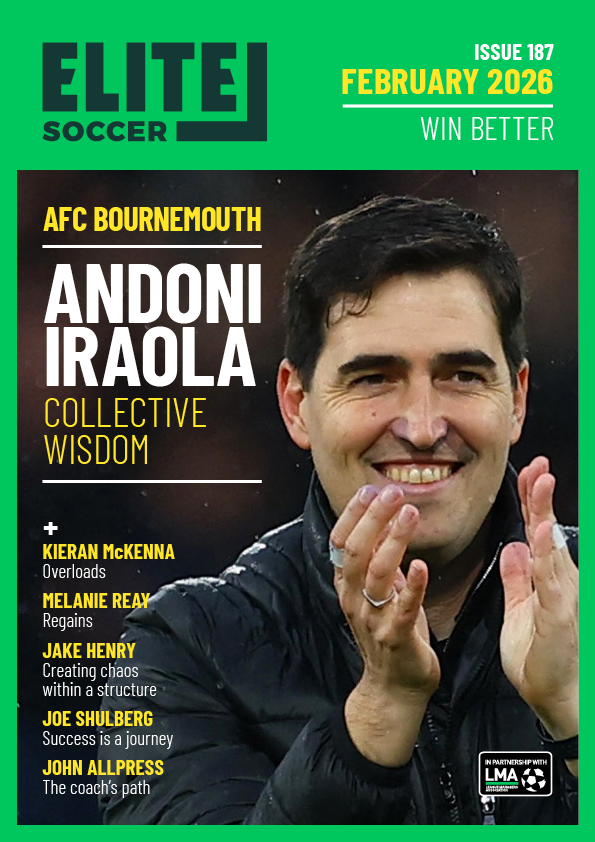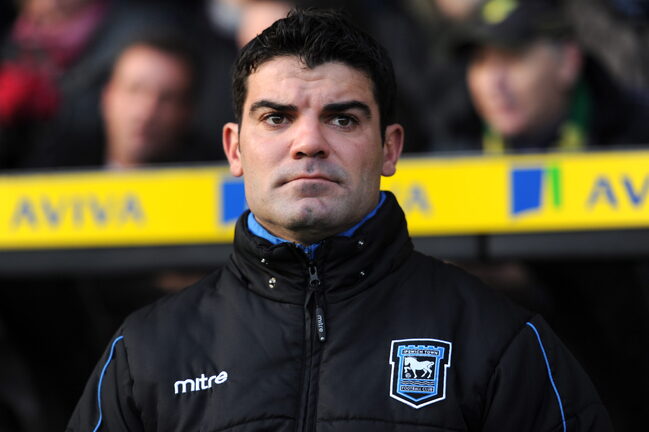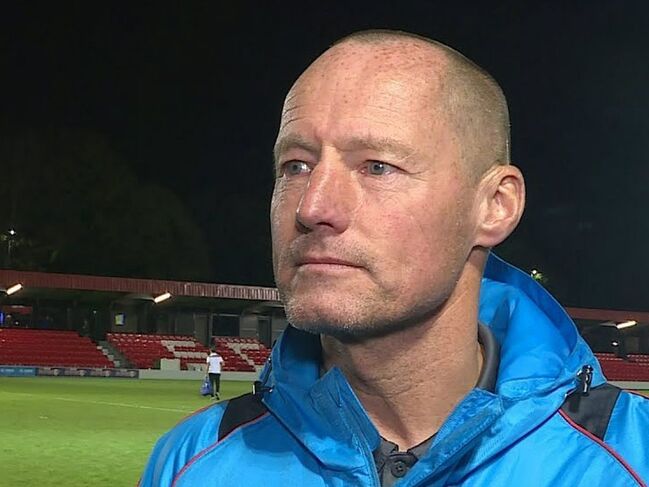NEXT ELITE SOCCER COACHING AWARD COHORT STARTS FEBRUARY 16 - ENROL NOW
You are viewing 1 of your 1 free articles
Stronger than ever
Former England boss Roy Hodgson believes that you never stop learning from the experiences of management. Now at Crystal Palace, he feels he’s stronger as a coach than ever.
When Roy Hodgson took the England job in 2012 he had been managing football teams, at home and abroad, for more than 36 years. “I thought that there probably wasn’t too much more to learn,” he says, “that it was a question of putting all my knowledge and experience to good use. But I have learned and progressed much more over the last four years than I could ever have imagined.”
Incredible though it might sound coming from someone with Hodgson’s depth and breadth of experience, none of us stop learning as our careers progress.
Having already managed Switzerland, Finland and the UAE, Hodgson was no stranger to the challenges of coaching a national side – the intense pressure and expectations, the little time you have with the players – but the potential he found to learn and grow as England boss came as a pleasant surprise.
“That period with England was incredibly important in my development, especially in terms of dealing with the players,” he says. “Taking on board new ideas and new ways of presenting them to the team; making sure that the players on the field are capable of following the chosen team strategy; and responding to all of the other changes in the game, which has seen such growth in areas like sport science, media relations, nutrition and psychology.
“I also benefited hugely from working with the high-quality players that we had in the England squad and was impressed by how receptive they were to new ideas and methods,” he says. “Some people seem to have a perception that players at the top of their game are resistant to being coached and that they are motivated more by money and fame than the honour of playing for their country. It couldn’t have been further from the truth.”
THIS MUCH I KNOW
With each new challenge, a manager will learn to adapt, change his or her approach and improve, and we get better at doing this with experience. This means the beginning of your career might not always be when the learning curve is steepest, nor when you develop the most. In Hodgson’s case, it was early success at Swedish clubs Halmstad and Malmö that launched his career. Yet, he says it was more a case of putting into practice what he had learned during his coaching education than really changing or improving as a manager.
“When I stood there in front of the players for the first time in 1976 I had nothing but my FA education to work with. However, while I didn’t have a lot of wisdom or depth of knowledge, I had total belief in what I’d been taught and I had the ability to get that across,” he says. “I also had certain qualities that you need as a coach to bring people with you – I was unbelievably enthusiastic and energetic, could inspire people and, of course, after that early success I had self-confidence.”
During the first 15 years of his career, Hodgson achieved an incredible five consecutive league championships and two Swedish cups with Malmö and promotion to the Allsvenskan with Örebro, but it is the two titles he won with his first team, Halmstad, as a fledgling manager that still stir up the most pride. “The fact is, the successes at Malmö were expected of us and we were well equipped to win, but Halmstad was a second division side that, while occasionally making it into the first division, had the unfortunate tendency of dropping back almost immediately. The achievement was all the greater because we were never meant to succeed.”
It was a magical time for the young manager and his charges, who had somehow pulled off one of the biggest coups in Swedish football history.
“I remember very clearly the coach journey home after the game that won us the championship; it was a very bleak and cold October day. Back then, drives home tended to be noisy affairs, usually with some drink involved, but this one was a proper party over the 3.5-hour journey back to Halmstad. Halfway there, the chairman asked the driver to pull in at the next town, got out and knocked on the first door he came to.
“Now, in those days, there was no 24-hour sports news; instead, each night there was a 15-minute bulletin that encapsulated everything that was happening in sport, in Sweden and around the world. So, when a man answered the door, the chairman said, ‘Sorry to bother you, but we’re the Halmstad football team and we’ve just won the championship. The programme is about to start, can we come in and watch it?’ Amazingly, he said yes, so all 13 players and our staff of around nine piled into his living room to see us announced as the champions.”
LASTING LEGACY
Far from simply filling trophy cabinets, though, Hodgson’s legacy in Sweden runs much deeper. To this day, he and close friend Bob Houghton are held in the highest esteem in Sweden, having introduced a style of play that went on to transform the national game.
When Hodgson got the opportunity to manage at Halmstad, he followed the lead that Houghton had set in the previous years at Malmö, introducing the only football he knew how to coach, which while prevalent in England was a radical shift in Sweden. “At the time, with Germany and Bayern Munich dominating the international and club scenes, it was the Germanic style of football that was emulated across Sweden and beyond,” explains Hodgson.
“When Bob and I arrived with our brand of football, it posed a clear problem for the man-to-man marking and liberal style of play adopted by the other Swedish teams. They weren’t used to being pressurised and their three marking defenders found it hard to come to terms with a team that had two centre forwards.”
The impact on the game was huge, as a growing contingent of coaches and managers took notice of the Englishmen’s model and applied it successfully in their own teams. “By the time Bob and I left in the mid-80s, there was a whole body of people who were keen to leave the old ways behind and follow the new model that we had introduced. That was to be the new Swedish way.”
DIGGING DEEPER
It was also during Hodgson’s time in Sweden that he began to mature as a leader, and really developed his style and philosophy as a manager. As one of the most respected and successful managers in the Swedish game, he would often be invited to speak at events and lectures, and it forced him to think about what makes a winning team and what he stood for as a manager.
“For many years, I believed that coaching and the field of play were everything, but I started to realise that there was a whole chapter of management I didn’t yet fully understand,” he says. “I read many books back then related to leadership and still do on occasion today, learning from other fields and from insight provided by the LMA. Sometimes, the concepts and advice you come across are things you already know on some level, but there’s so much going on and so much to think about as a manager that it’s easy to forget.”
A central characteristic of Hodgson’s style as a leader has always been an empathy, warmth and respect for his players and here, too, he says he has improved with experience. “Right from the start, I wasn’t dictatorial; I didn’t say to the players, ‘this is what’s best for you, this is what you’re going to do and you’re going to do it simply because I say so’. Even though I was careful in those early days to keep some distance, due to the fact I was the same age as the players, I always tried to put myself in their shoes and to ensure that the empathy I felt for them was clearly seen. I can see that when I was most successful I was more empathetic, and adopted a listening approach, rather than becoming harder and distancing myself.”
As he developed his style of leadership over the years, it bore fruit both at home and abroad, earning him a reputation, in particular, for enabling struggling teams to exceed expectations.
For example, Hodgson guided Inter Milan from the bottom of Serie A to a seventh-place finish and a UEFA cup qualification in the 1995-96 season, then proceeded to repeat the magic at Blackburn Rovers in his first season in charge.
Under his watch, FC Copenhagen won their first Superliga championship for seven years and the Danish Supercup, while back in the Premier League Hodgson steered Fulham away from relegation and to their highest ever finish and made it to the UEFA Europa League final, seeing himself awarded LMA Manager of the Year in 2010 in the process.
NO TO THE YES-MEN
Over 40 years of experience, managing 17 clubs in six countries and four national sides, could easily breed complacency, but it’s evident that Hodgson is aware of his strengths and weaknesses, and open to alternative points of view.
In fact, he acknowledges that, without self-awareness, experience can be dangerous thing, especially when coupled with success. “It can be great if it’s harnessed in the right way and you learn from it and make changes, but there can also be a negative side if you think you can repeat success by doing the same things. You have to keep your principles consistent, but be prepared to adapt to each of the teams you are coaching, and be aware that what has worked with the last team might not be relevant for the new one.”
What really matters, he adds, is how good you are as a coach and a leader, how relevant your coaching practices are, how your players feel when they come off the field, and how much balance and perspective you are able to maintain.
One of the biggest mistakes you can make as you get more experienced, he adds, is to surround yourself with people who are so grateful to have a job with you that they won’t voice concerns or doubts about what you’re doing. “You need people around you who will speak their minds,” he says.
“Self-awareness is incredibly important and, although you can do it yourself if you have the right mindset, it helps to have mentors or confidants around you who you can ask for an honest opinion or advice. The game at the top level is becoming so pressurised, with many different aspects thrust upon the manager, so you need to be kept constantly aware of where you might be straying away from your strengths or onto your weaknesses.”
After leaving the England post, which he says is the greatest accolade and honour a football coach can have, Hodgson has maintained his enthusiasm for the game and was recently appointed to the manager’s job at Premier League Crystal Palace. “I still have a lot of energy and passion for football – I don’t think it will ever go away,” he says. “I’m very proud of the career I’ve had and I’d like it to continue, not least because, in many ways, I feel I’m now stronger as a coach and know much more than ever before.”
Editor's Picks
Attacking transitions
Deep runs in the final third
Using the goalkeeper in build-up play
Intensive boxes drill with goals
Penetrating the final third
Creating and finishing
My philosophy
Pressing initiation
Compact team movement
Coaches' Testimonials

Alan Pardew

Arsène Wenger

Brendan Rodgers

Carlos Carvalhal

José Mourinho

Jürgen Klopp

Pep Guardiola

Roy Hodgson

Sir Alex Ferguson

Steven Gerrard
Coaches' Testimonials

Gerald Kearney, Downtown Las Vegas Soccer Club

Paul Butler, Florida, USA

Rick Shields, Springboro, USA

Tony Green, Pierrefonds Titans, Quebec, Canada
Join the world's leading coaches and managers and discover for yourself one of the best kept secrets in coaching. No other training tool on the planet is written or read by the calibre of names you’ll find in Elite Soccer.
In a recent survey 92% of subscribers said Elite Soccer makes them more confident, 89% said it makes them a more effective coach and 91% said it makes them more inspired.
Get Monthly Inspiration
All the latest techniques and approaches
Since 2010 Elite Soccer has given subscribers exclusive insight into the training ground practices of the world’s best coaches. Published in partnership with the League Managers Association we have unparalleled access to the leading lights in the English leagues, as well as a host of international managers.
Elite Soccer exclusively features sessions written by the coaches themselves. There are no observed sessions and no sessions “in the style of”, just first-hand advice delivered direct to you from the coach.





